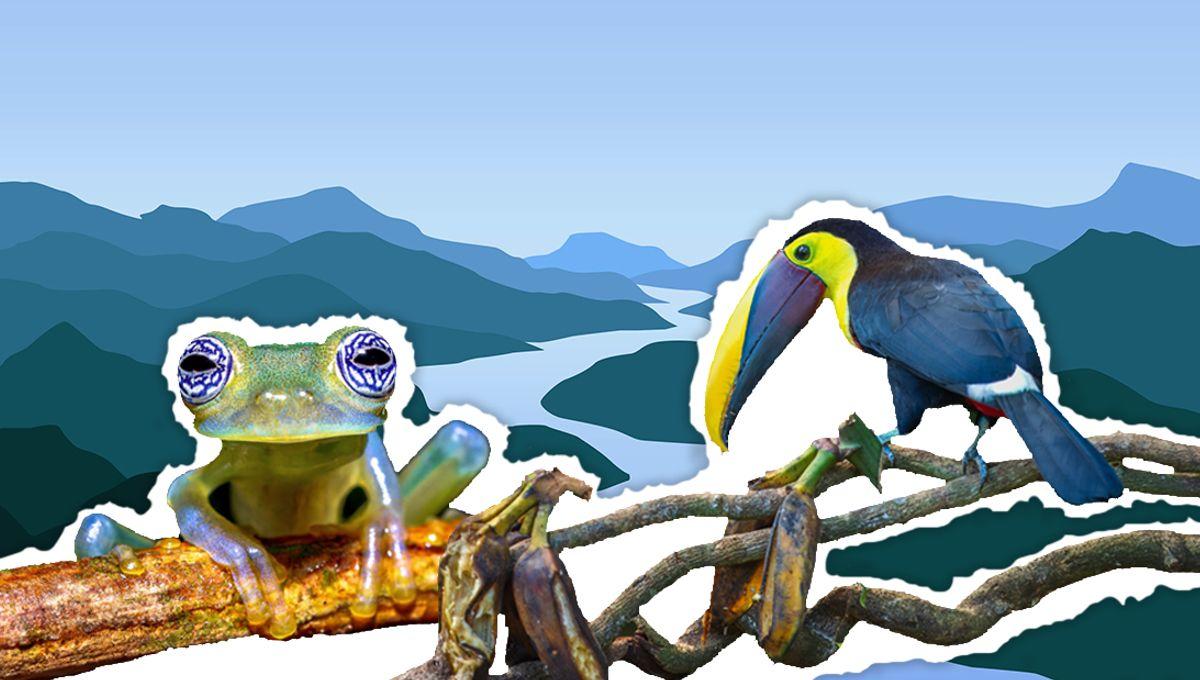It’s not often that nature takes on the “bad guys” and wins, but in 2021, a rainforest went head-to-head with the gold miners tearing it apart and came away victorious. In a precedent-setting courtroom battle, Ecuador’s top court ruled in favor of the threatened Los Cedros cloud forest, stripping international mining companies of their permits and forcing them out.
This was possible because, in 2008, Ecuador became the first country to enshrine the Rights of Nature in its Constitution. As per the document, nature has “the right to exist, persist, maintain, and regenerate its vital cycles, structure, functions, and its processes in evolution.” Without the legal jargon, this means that nature isn’t merely seen as property or a resource to exploit. It’s an independent entity with its own unique rights. If anything stops nature's ability to survive and thrive, it’s directly breaking the law of the land. Although expressed in modern courtrooms, it’s an idea that was spawned out of Ecuador’s deep culture and history. The official wording in the constitution refers to both nature and Pachamama, a goddess revered by many Indigenous peoples of the Andes. The deity essentially represents Mother Earth, embodying nature and the interconnectedness of all living things. In this worldview, nature is not an inanimate collection of animals, plants, rivers, and rocks that we can use and abuse as we please, but a sacred force that creates, nurtures, and remembers. It may seem like a groundbreaking concept, but it has a well-established precedent in other areas. Giant organizations and corporations, as non-human entities, possess many of the same "legal person" rights as individuals and, in some cases, benefit from so-called "corporate personhood." In Ecuador, and later in other countries, this legal logic has been extended beyond companies to natural systems, recognizing them as entities with rights of their own. “When we're talking about something like a corporation, an organization, or a charitable trust, those are all legal persons. They can own property, they can sue, and be sued. They can enter into contracts. So there are these legal entities that have rights,” Dr Viktoria Kahui, a senior lecturer in environmental economics at the University of Otago in New Zealand, told IFLScience. “With the environmental legal personhoods, most of them that we see today, are actually very much like a charitable trust or an organization in the sense that they're non-human, but they have legal standing.” Ecuador, one of the world’s most biodiverse nations, is home to rare species such as the ghost glass frog. Image credit: Rudmer Zwerver/Shutterstock.com The Los Cedros cloud forest isn’t the only instance of Ecuador’s Rights of Nature being implemented. In October 2023, an Ecuadorian judge recognized the Alambí River as a subject of rights, annulling a resolution that had authorized water use for a hydroelectric project, citing the huge environmental and social impacts of the plan. More recently, in November 2024, Ecuador's top court ruled that the country’s coastal marine ecosystems are entities with legal rights, mandating the government to regulate activities like industrial fishing to safeguard these environments. “In Ecuador, it's really interesting [...] When they implemented this in the constitution, initially, not much happened. But over time, judges started to implement the laws around this intrinsic value, around this right to exist, and more and more often now they're starting to apply it,” Dr Kahui said. Since then, similar rights-of-nature laws have been enacted in Bolivia, New Zealand, Uganda, Panama, Spain, the US, and Canada, while Colombia, Bangladesh, Brazil, and India have also recognized certain rights of nature. Dr Kahui and her team have published a study examining 14 high-profile cases of nature’s legal rights in action. Their research reveals striking differences in scale. Some laws grant sweeping protections to entire ecosystems, while others focus on a single river or specific natural entity. Despite their differences, these cases were forged by very similar forces. “There's lots of variation, but there was one thing that stood out: they were always a long, lasting economic battle between some sort of external economic pressure and people who live close to the resource, trying to withstand that pressure and trying to fight for that resource, trying to protect it,” Dr Kahai noted. In other words, this novel form of legal protection only tends to emerge when the natural world is pushed to the brink. In 2023, a paper in the journal Science boldly claimed: “Rights-of-nature laws have reached a critical point at which they may either be normalized or marginalized.” Dr Kahui is among those who believe the momentum is far from fading. As pressure on the natural world intensifies and successful case studies accumulate, the idea that ecosystems can hold legal rights may become less radical and more likely to take root. The real test may lie in how effective these laws prove to be. One of the criticisms of rights-of-nature laws is that they’re a nice idea, but lack the punch to have an impact in the realities of the real world. Part of the reason is that it’s hard to define their success. Few cases have gathered ecological data before and after legal protections were granted, making it hard to assess the tangible impact. And with the concept still in its infancy, long-term outcomes remain uncertain. That said, the early cases that have emerged offer glimmers of possibility. From rivers in New Zealand to forests in Colombia, these legal experiments are beginning to show how nature might defend itself in court and how human systems might adapt to recognize its voice. “When you measure excess success in terms of local input into decision making over the resource, then we have seen huge changes,” notes Dr Kahui. “Suddenly, local communities have so much more decision-making power over their own resource.” “I don’t think legal personal rights of nature are a panacea. I think it's a step forward,” she added.




